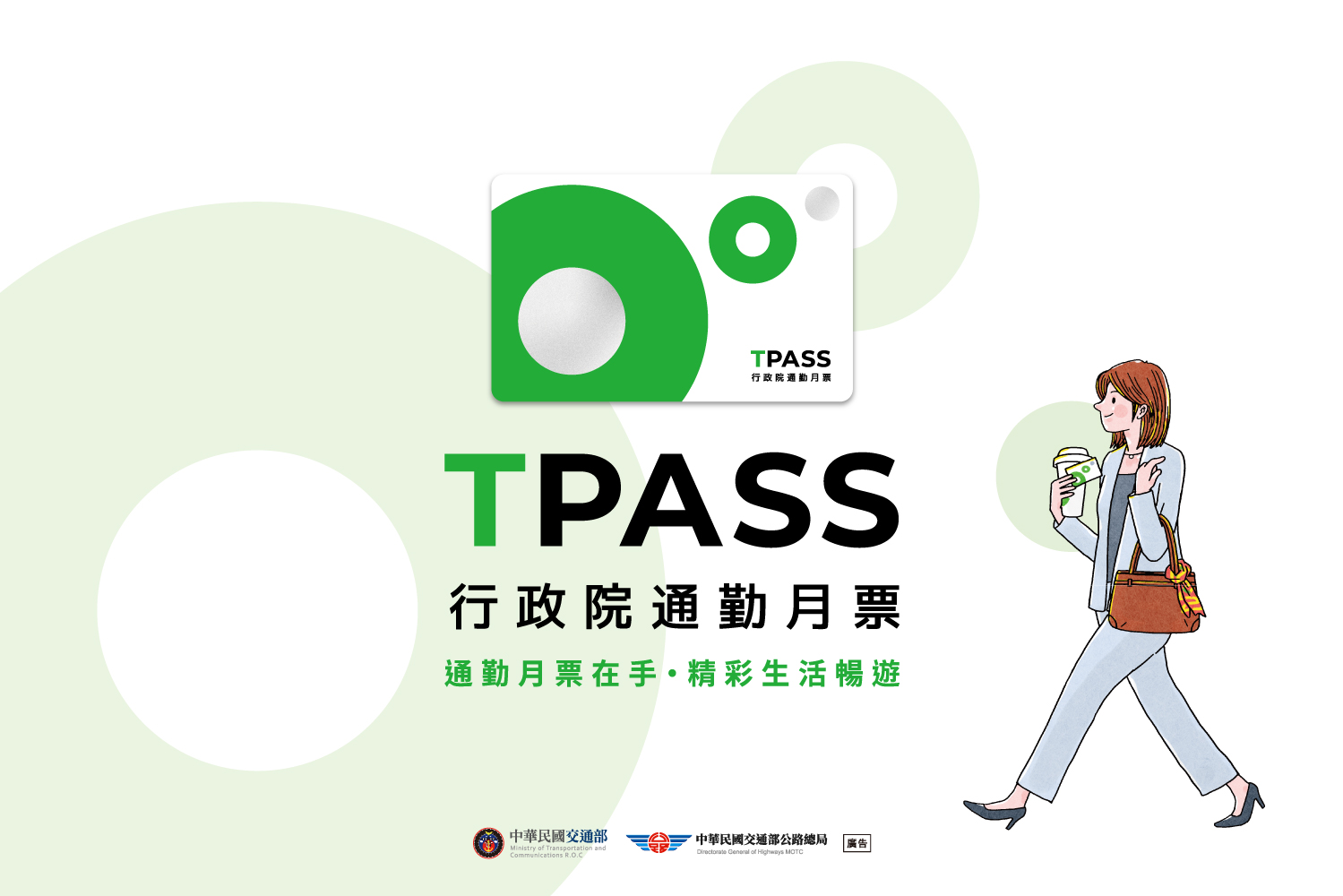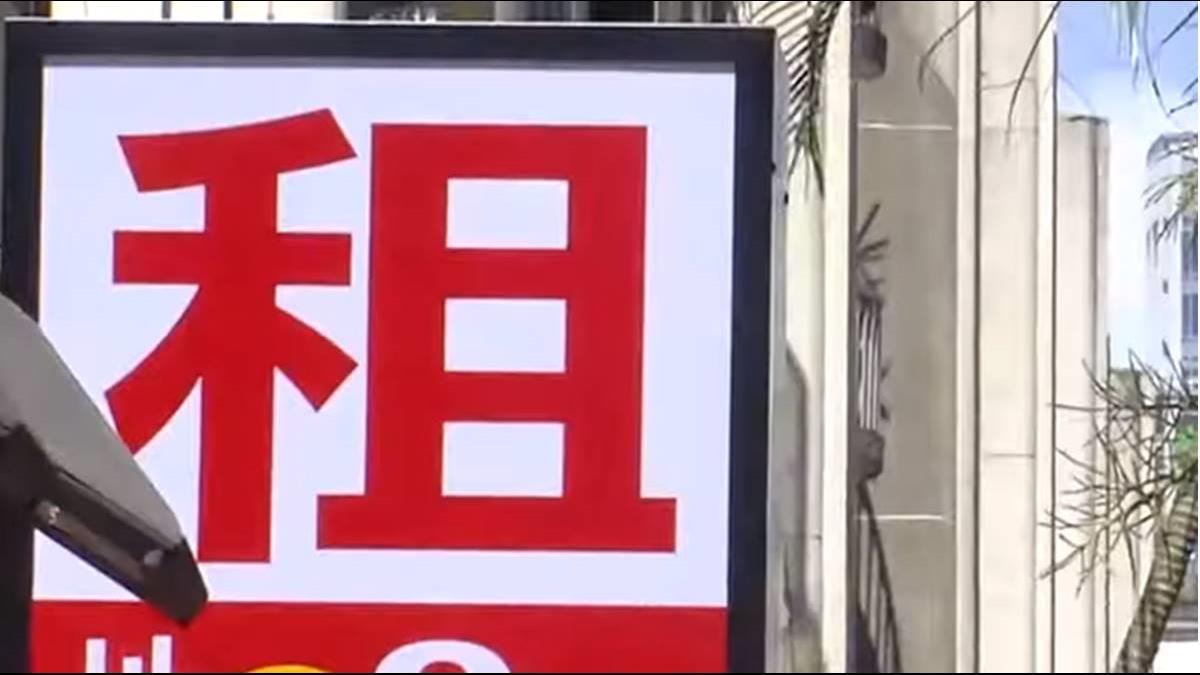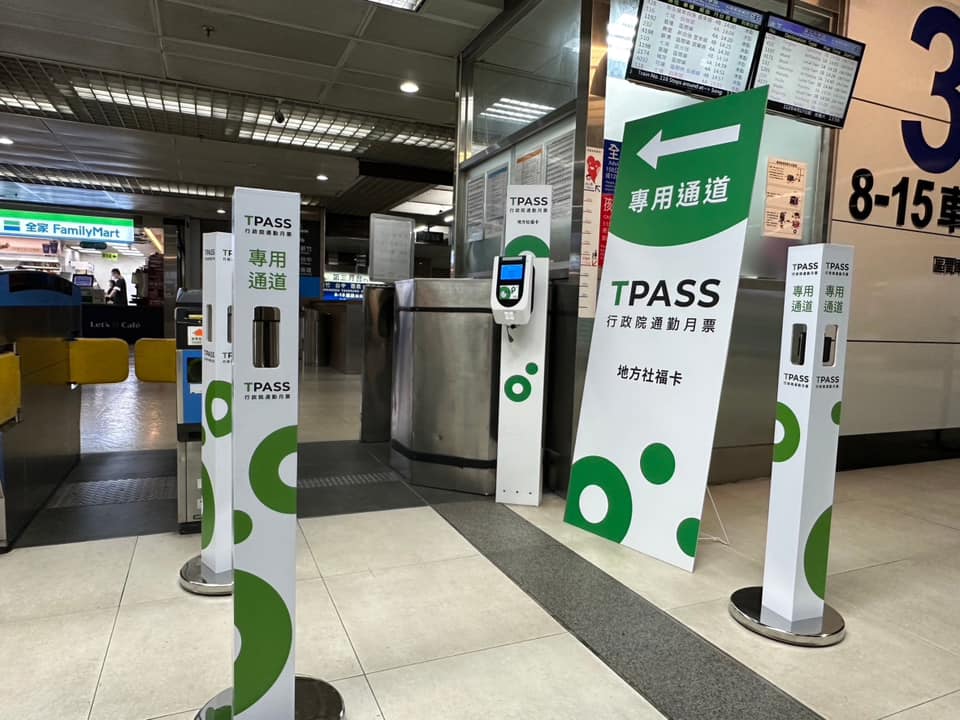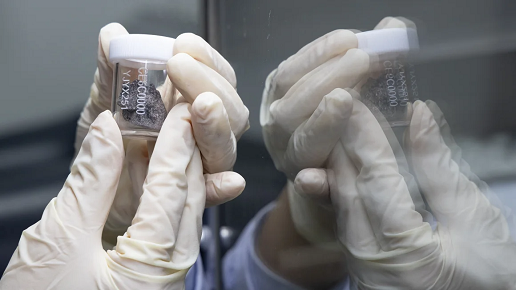The government has announced a variety of new measures that will take effect on July 1st, including the Executive Yuan's public transportation monthly pass, increased childcare stay allowance, new system of partial burden of health insurance, etc. Taiwan Immigrants’ Global News Network has put together a carefully curated pack of information for new immigrants.
1. Monthly Public Transportation Passes of Executive Yuan
The "TPASS Executive Yuan Commuter Monthly Pass" will be officially launched on July 1, including 1,200 NTD for Keelung, Taipei, New Taipei, and Taoyuan. 699 NTD Taichung City Resident Card for Taichung City and Miaoli, Nantou, and Changhua, 999 NTD Non-Taichung Resident Card for Taichung City and Miaoli, Nantou, and Changhua, and 999 NTD for Taichung City (Taichung citizens) 299 NTD, Taichung City (non-Taichung Resident) 599 NTD, 399 NTD for Tainan, Kaohsiung, Pingtung, and 399 NTD for Pingtung County.
Read more: Public transport monthly pass for north, central Taiwan starts on July 1st

The "TPASS Executive Yuan Commuter Monthly Pass" will be officially launched on July 1.Photo reproduced from Directorate General of Highways, MOTC Facebook
2. Taiwan Railways extends booking hours
The booking time for Taiwan Railways on the day of departure has been extended to 30 minutes before departure from July 1st, and the payment deadline is 20 minutes before departure.
3. NT$30 billion expanded rent subsidy program
The "NT$30 billion expanded rent subsidy program" is in effect from July 3rd at 9:00 am through December 31, 2024, at 5:00 pm. Aside from lowering the application age to 18 years old, this revamped program also allows renters to apply directly without the landlord's permission, and the application procedure is easier to use for tenants.

The "NT$30 billion expanded rent subsidy program" is in effect from July 3rd at 9:00 am through December 31, 2024, at 5:00 pm.Photo reproduced from Pixabay
4. Maternity related subsidies
From July 1, the unpaid childcare subsidy will rise from 60% of the base income to 80%, with the government covering 20% and the employment insurance fund 60% of the cost. The number of prenatal visits will rise from 10 to 14, and the length of maternity leave will rise from 5 to 7 days.
Increase the funding and infertility treatment targets (test-tube babies). In the past, it was only available to families with low and intermediate incomes, and the subsidy was only provided once a year. The maximum subsidy for low- and middle-income households is NT$150,000 per time; the maximum subsidy for consecutive subsidies is NT$60,000. The maximum subsidy is NT$100,000 every subsidy.
5. The new system of partial burden of health insurance will take effect on July 1st
Beginning on July 1, consumers must pay a portion of the 300 NTD drug burden when they visit major hospitals to see a doctor and receive medication. Emergency department visits will cost 750 NTD in major hospitals and 400 NTD in smaller facilities; clinic fees won't alter. Serious injury victims and those with low incomes won't be impacted. Low- and middle-income families and individuals with disabilities will be charged 550 NTD to visit the medical center's emergency room and 300 NTD to visit the local hospital.

Expansion of 2 health insurance benefits for young children.Photo reproduced from freepik
6. Expansion of 2 health insurance benefits for young children
Starting on July 1, the payment for artificial electronic ears for hearing-impaired patients under the age of 18 has been loosened from the initial unilateral to bilateral, and the cost for a set of electronic ears is around NT$570,000.
Additionally, the whole payment may be utilized for the "Maikewei" diaphragmatic potential catheter for preterm infants and neonates, as well as the "diaphragmatic potential catheter" for infants under 1 year old with bronchopulmonary hypoplasia and difficult extubation.

On July 1st, online shopping package reduction will begin.Photo reproduced from Pixabay
7. On July 1st, online shopping package reduction will begin.
The use of polyvinyl chloride (PVC) materials, the requirement that paper packaging materials include at least 90% recycled content, and the use of plastic packaging materials will all be restricted as of July 1st. More than 25% of the materials used must be recycled.
8. NRICM101 will no longer be subsidized by public funds
The NRICM101 in Taiwan has significantly aided in the fight against COVID-19. For the time being, the EUA has been extended through June 2024 in order to make acquiring a drug certificate easier. There won't be any governmental subsidies after July. One could break the law if you import Taiwan.







